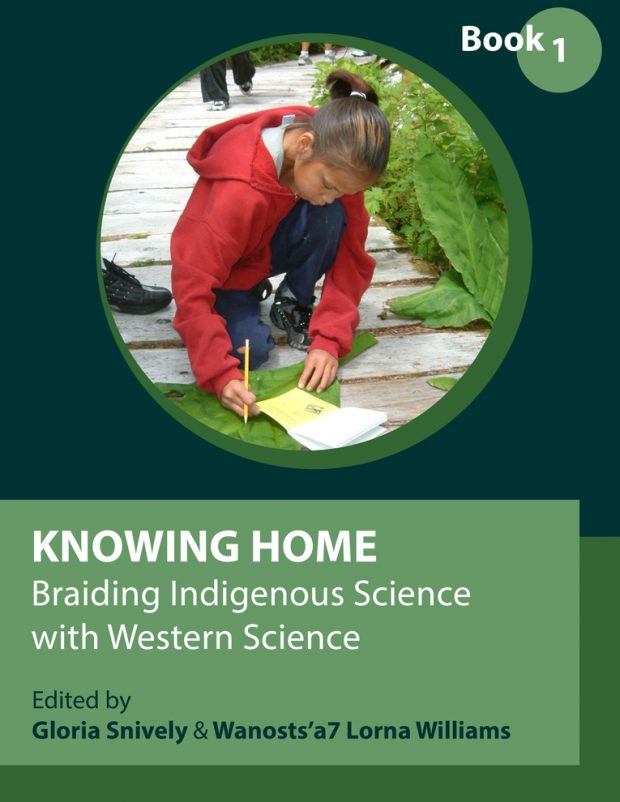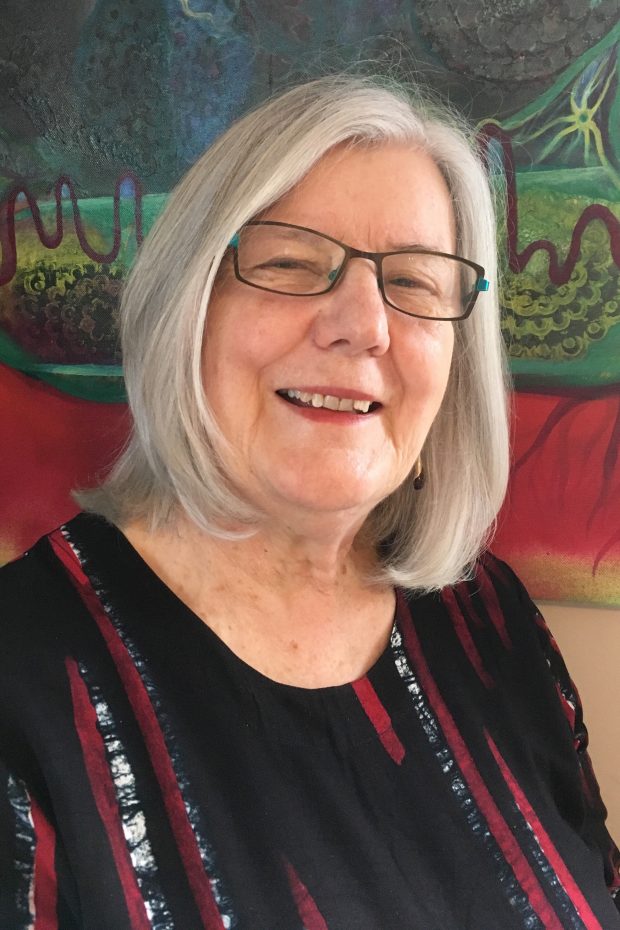The annual UVic Author Celebration is coming up as part of Ideafest. Join us as we celebrate books written by UVic authors, including an engaging panel discussion on issues facing First Nations communities.
When: March 8, 2018
Where: University Bookstore
Time: 3:00-4:30pm
The author panel includes: John Borrows (Law), Michele Tanaka (Education), Paul Whitinui (Education), and Wanosts’a7 Lorna Williams (Education). Rebecca Johnson (Indigenous Law Research Unit) will moderate.
This week, we will highlight the books written by members of the author panel.
Knowing Home: Braiding Indigenous Science with Western Science, Book 1
Edited by Gloria Snively and Wanosts’a7 Lorna Williams.
About the Book
 Knowing Home attempts to describe the creative vision of Indigenous scientific knowledge and technology that is derived from an ecology of a home place. The traditional wisdom component of Indigenous Science—the values and ways of decision-making—assists humans in their relationship with each other, the land and water, and all of creation. Knowing Home weaves Indigenous perspectives, worldviews, and wisdom practices into the science curriculum. It provides a window into the scientific knowledge and technological innovations of the Indigenous peoples of Northwestern North America, providing numerous examples and cases for developing science lessons and curricula. Knowing Home shows how Indigenous perspectives have the potential to give insight and guidance as we attempt to solve the complex environmental problems of the 21st century.
Knowing Home attempts to describe the creative vision of Indigenous scientific knowledge and technology that is derived from an ecology of a home place. The traditional wisdom component of Indigenous Science—the values and ways of decision-making—assists humans in their relationship with each other, the land and water, and all of creation. Knowing Home weaves Indigenous perspectives, worldviews, and wisdom practices into the science curriculum. It provides a window into the scientific knowledge and technological innovations of the Indigenous peoples of Northwestern North America, providing numerous examples and cases for developing science lessons and curricula. Knowing Home shows how Indigenous perspectives have the potential to give insight and guidance as we attempt to solve the complex environmental problems of the 21st century.
Knowing Home is available online or you can order a hard copy through the UVic Bookstore.
PDF versions are available at: https://dspace.library.uvic.ca:8443/handle/1828/7821
About the Editors
 Dr. Gloria Snively is Professor Emeritus at the University of Victoria where she taught science methods, environmental/marine education, and culture courses. She was Director of the Graduate Program in Environmental Education. For 12 years, she was involved with the Asia Pacific Network whose purpose is to strengthen links between the research community and school-based environmental education in the Asia-Pacific region. Her work with Indigenous education spans 4 decades and has always been inspired by Indigenous leaders. She enjoyed giving natural history talks and walks to students, teachers, park interpreters, First Nations and community groups for 50 years; she prefers to explore forest, ponds and seashores first-hand.
Dr. Gloria Snively is Professor Emeritus at the University of Victoria where she taught science methods, environmental/marine education, and culture courses. She was Director of the Graduate Program in Environmental Education. For 12 years, she was involved with the Asia Pacific Network whose purpose is to strengthen links between the research community and school-based environmental education in the Asia-Pacific region. Her work with Indigenous education spans 4 decades and has always been inspired by Indigenous leaders. She enjoyed giving natural history talks and walks to students, teachers, park interpreters, First Nations and community groups for 50 years; she prefers to explore forest, ponds and seashores first-hand.
 Dr. Wanosts’a7 Lorna Williams OBC walking in peace is Lil’wat of the St’at’yem’c First Nation. Her life has been devoted to promoting and restoring Indigenous culture and language. She worked as an Indigenous educator and language specialist for more than 50 years in diverse settings, including Indigenous communities, public schools, and adult education settings. Dr. Williams recently retired from the University of Victoria as Canada Research Chair in Indigenous Knowledge and Learning (co-appointment with Faculty of Education and Department of Linguistics) and an associate professor, where she developed and delivered an innovative series of courses on learning and teaching in an Indigenous world.
Dr. Wanosts’a7 Lorna Williams OBC walking in peace is Lil’wat of the St’at’yem’c First Nation. Her life has been devoted to promoting and restoring Indigenous culture and language. She worked as an Indigenous educator and language specialist for more than 50 years in diverse settings, including Indigenous communities, public schools, and adult education settings. Dr. Williams recently retired from the University of Victoria as Canada Research Chair in Indigenous Knowledge and Learning (co-appointment with Faculty of Education and Department of Linguistics) and an associate professor, where she developed and delivered an innovative series of courses on learning and teaching in an Indigenous world.
Praise for the Book
“It is a thrill for me to see this book and to know that it will be a readily available reference for learners and educators alike. At a time when Canadians are finally embarking on a journey of Truth and Reconciliation with Aboriginal Peoples, this insightful edited volume is both timely and critically important…. Knowing Home will be a wonderful resource that will bring all Canadians to a higher level of understanding…” – Nancy Turner, Professor Emeritus and P. E. Trudeau Fellow, School of Environmental Studies, University of Victoria
“This book is both timely and critical, coming during the era of Canada’s Truth and Reconciliation Commission’s Calls to Action, and during British Columbia’s implementation of its New Curriculum, where educators have the opportunity to weave Indigenous perspectives into all parts of the curriculum in a meaningful and authentic manner. Knowing Home acknowledges and validates Indigenous Knowledges and brings it together with Western Science in a way that will be invaluable for educators.” – Nick X̱EMŦOLTW̱ Claxton, WSÁNEĆ (Saanich), PhD, Indigenous Education, University of Victoria
“The attainment of the UN Sustainable Development Goals by 2030 will require transformative new approaches to the creation and use of knowledge. This book Knowing Home provides a brilliant example of how new ways of knowing can be combined with Western knowledge for the betterment of our communities and indeed our planet. Knowing Home places Indigenous Science on an equal footing with Western Science and in the process illustrates how innovative research with Indigenous Elders and students can dramatically enhance our understanding of home/earth/land. And while the focus of this work is on the Indigenous Science of Northwestern North America, the research methods involved in the creation of this project, the focus on how to use Indigenous Science in classrooms, and the support of emerging Indigenous scholars can and should be carried out in many other parts of the world. Knowing Home is a defiant, provocative and hopeful intellectual contribution to the world we want.” – Budd Hall, Co-Chair UNESCO Chair in Community-based Research and Social Responsibility in Higher Education
“Knowing Home: Braiding Indigenous Science with Western Science is an inspiring collection of knowledge, expertise and cultural intelligence that will help all educators in transforming the foundations of learning for all students. As we strive to change the narratives in BC and beyond through authentic voices, new curricular directions and Aboriginal worldviews and perspectives, this book defines a way forward for our relationships and understandings grounded in the sacred territories of our people. This rich and reflective resource of traditional and contemporary ways of knowing and being will truly engage each of us in a personal and professional journey of truth and reconciliation.” – MUSGAM’DZI, Kaleb Child, Kwakwaka‘wakw, Director of Instruction, First Nations – School District #85, Vancouver Island North